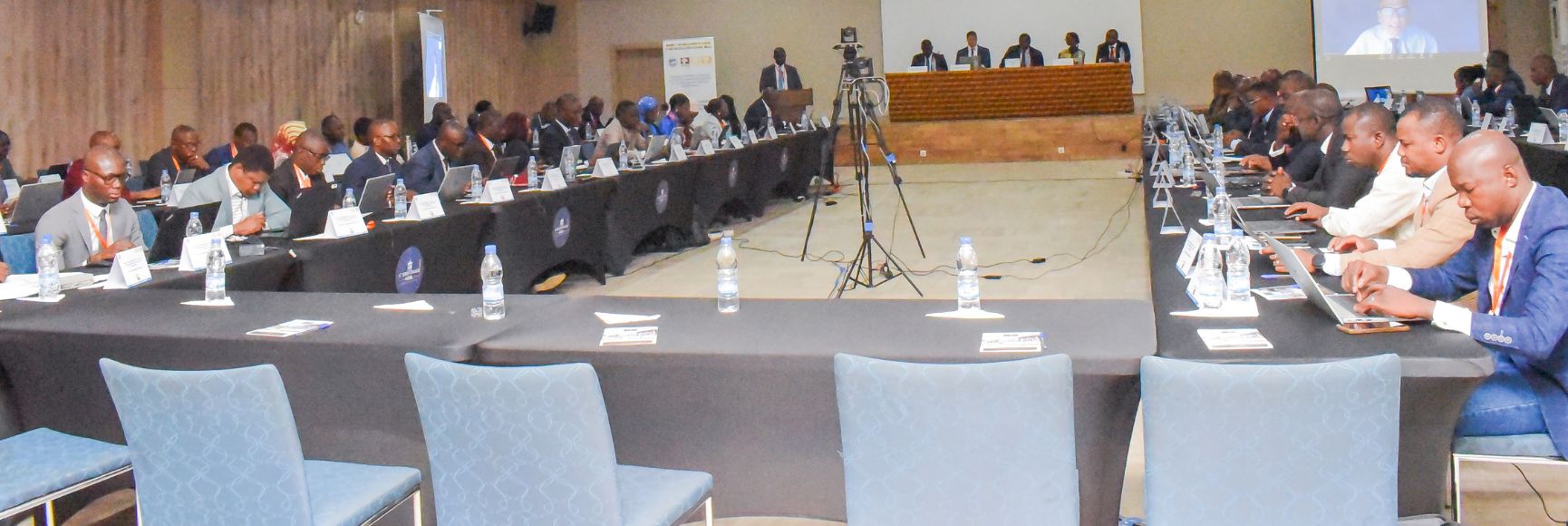Being a budget director, or the head of a macro-fiscal unit (MFU) of a ministry of finance, is a demanding job. So, it was an impressive combination of logistical ingenuity and good timing that brought together heads of budget and macro-fiscal functions from 11 Southern African countries for a regional workshop on ‘Strengthening the macro-fiscal function in ministries of finance’. The event was organized by the IMF’s Regional Technical Assistance Center for Southern Africa (AFRITAC South). The countries participating were Angola, Botswana, Comoros, Eswatini, Lesotho, Madagascar, Mauritius, Seychelles, South Africa, Zambia, and Zimbabwe.
The objective of the workshop was to equip these senior officials with strategies for effectively managing macro-fiscal functions and integrating these strategies with the budgeting process. It aimed to build networks, share experiences, and identify good practices. Topics discussed included macro-fiscal forecasting and analysis, medium-term fiscal frameworks (MTFFs), efficient organizational arrangements that improve decision-making within finance ministries, nurturing effective working relationships with other stakeholders, and building teams of motivated and capable technical staff.
Whilst each of the 11 countries faces its own unique set of challenges, some common themes emerged:
- The need to strengthen the analysis and publication of information on fiscal risks.
- Countries’ fiscal objectives are often considered either ineffective, unclear, or entirely missing.
- Several of the countries are seeking to improve the quality of their MTFFs and, generally, introduce a more strategic approach to fiscal policy-making and annual budgeting.
- Coordination within the finance ministry and with other ministries (including a planning ministry in some cases) is often difficult.
- Staff training and high turnover rates are frequently a cause of concern.
- Whilst many countries can generate good quality policy analysis and advice, communicating that advice to politicians and top management and influencing decisions can be a challenge.
On staff training, the most cited skills gaps relate to problem solving, quantitative analysis and report writing. A few participants shared positive experiences about partnering with local universities to help build skills, making use of free online training for staff and promoting staff development programs as a non-monetary incentive to retain them. The use of training needs questionnaires and staff training plans was also encouraged. Many countries included the need for more formalized staff training plans and including managerial and soft skills development in those plans.
High levels of staff turnover are a concern for many countries. Coping mechanisms include documenting processes and encouraging ‘twinning’ arrangements to minimize situations where only one staff member understands a model or technical process that underlies macroeconomic forecasting and fiscal analysis. Specific induction training and mentoring processes can be useful. An alternative to writing lengthy user manuals (for which there is rarely the time) is to ask staff to record “how to” videos that describe how a forecasting model or other technical process works. These videos can be stored on a private YouTube channel for new staff to watch.
To help improve macro-fiscal and budgeting functions, participants prepared plausible action plans and presented them on the final day of the workshop. Suggestions included:
- Establishing long-term fiscal frameworks to assess fiscal sustainability based on demographic changes.
- Introducing clearly defined and monitorable fiscal objectives and targets.
- Institutionalizing work on fiscal risks and scenario analysis.
- Using analytical tools to promote evidence-based macro-fiscal policy decision making.
- Creating Macro Working Groups to improve coordination and information sharing for preparing macro-fiscal forecasts.
Participants committed to maintaining the network with counterparts to continuously exchange knowledge and the sharing of experiences.




